We measure our success by tracking non-financial key performance indicators that reflect our strategic priorities.
Our responsibility in action
We continue to review the sustainability areas that are most material and relevant to our stakeholders and have set ourselves targets in those areas that are aligned to our corporate strategy.
Our progress against these targets is shared below and in our Annual Report & Accounts 2024.
Non-financial KPIs
Environment
Operational emissions
Since the adoption of our near-term absolute emissions reduction targets, we measure our environmental performance against these. Operational emissions comprise scope 1, scope 2 (market-based) and scope 3 (business travel and employee commuting).
Why we measure it
We measure our carbon emissions to reduce our impact on the environment and increase operational efficiency. We track both location-based and market-based scope 2 emissions.
Target
2030: reduce absolute scope 1, scope 2 (market-based) and scope 3 (business travel and employee commuting) by 50% vs 2019 base line.
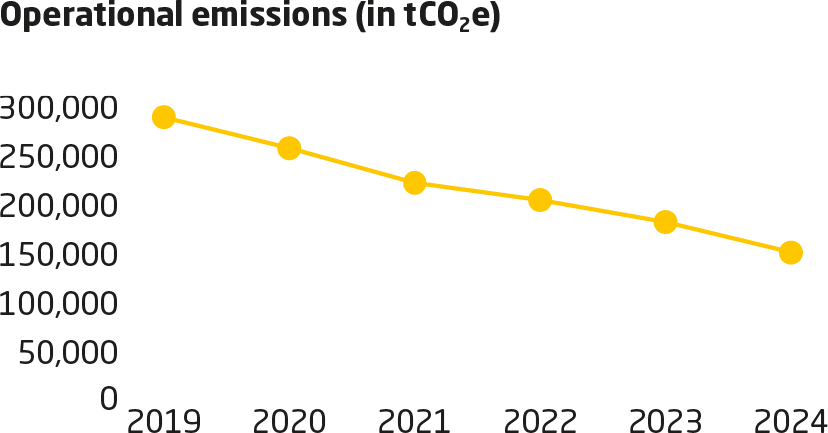
Employees
Voluntary permanent employee turnover and employee engagement
Voluntary permanent leavers are employees who choose to leave the Group themselves. This does not include employees on a fixed-term contract.
Intertek ATIC Engagement Index – based on the key drivers of sustainable value creation and which measures engagement on a monthly basis in every operation with the following metrics: Net Promoter Score, customer retention, quality, voluntary permanent employee turnover and Total Recordable Incident Rate.
Why we measure it
Ensuring employees are engaged is essential to talent retention and we measure and monitor this closely at a global and local level through our voluntary turnover rate.
Target
We aim to keep our voluntary permanent turnover rate below 15% and continue to target an Intertek ATIC Engagement Index score of 90 or more.
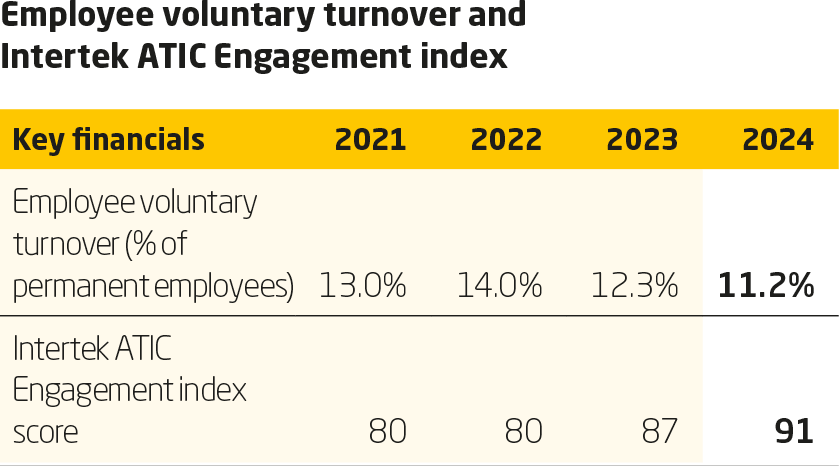
Health & safety
Total Recordable Incident Rate ('TRIR')
Recordable incidents include medical treatment incidents, lost time incidents and fatalities per 200,000 hours worked.
Why we measure it
A reduction in incidents is an important measure of the effectiveness of our safety culture. It also lowers rates of absenteeism and costs associated with work-related injuries and illnesses.
Target
TRIR of less than 0.5 per 200,000 hours worked.
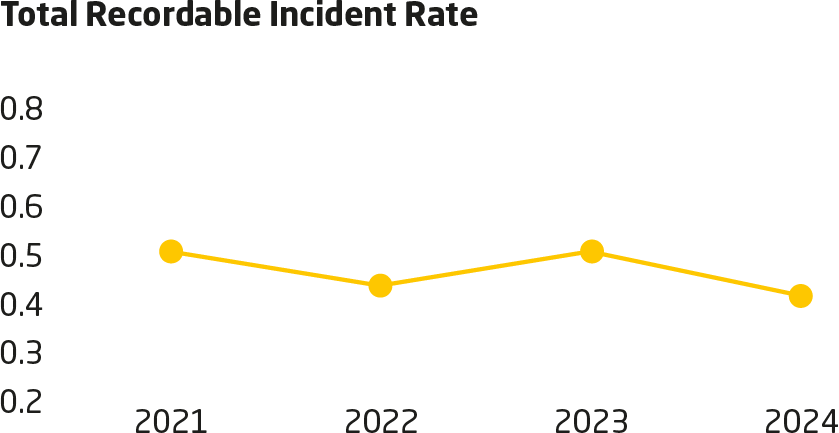
Diversity, equity and inclusion
Gender balance
Percentage of women in senior management roles (Group Executive Committee and their direct reports).
Why we measure it
We promote diversity in all its forms, including gender, age, sexual orientation and disability, as well as having an ethnic and social make-up that reflects broader society. Achieving better gender balance is a driver of progress.
Target
2025: we aim to increase the proportion of women in senior leadership roles to 30%.
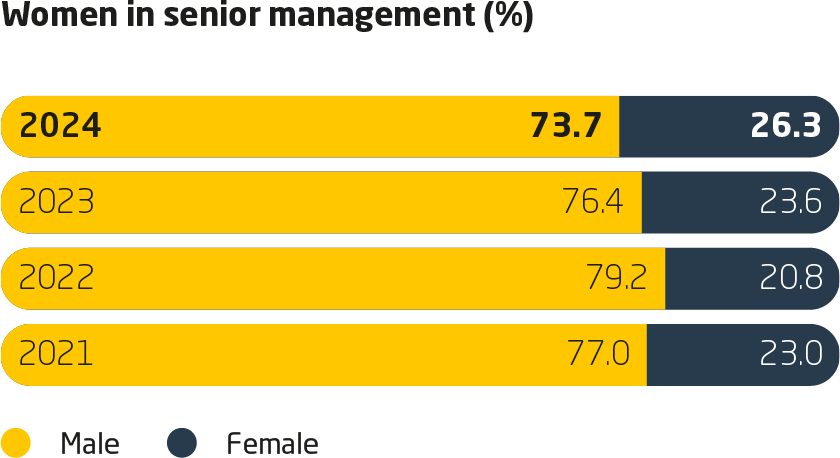
Customer satisfaction
Customer focus
Average number of Net Promoter Score ('NPS') interviews carried out each month.
Why we measure it
Customers are our priority. Since 2015, we have used the NPS process to listen to our customers. These insights give us a deep understanding of what our customers need and want, fuelling our innovations.
Target
We will continue to aim to conduct at least 6,000 NPS interviews per month.
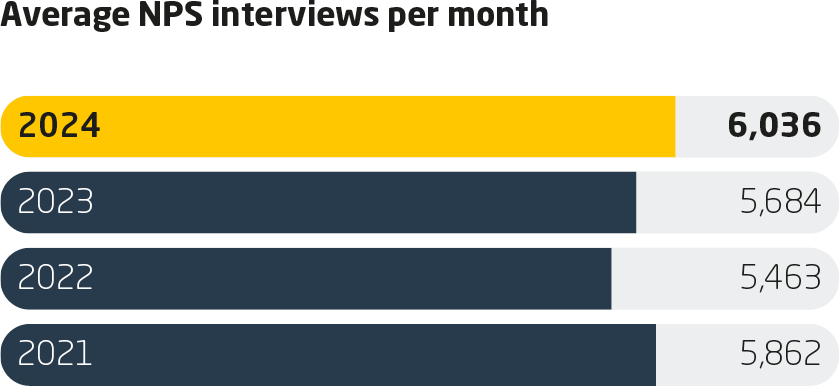
Compliance
Compliance training
Completion of annual compliance training by eligible employees (online or face to face, when available) during the training window.
Why we measure it
Our commitment to the highest standards of integrity and professional ethics is embedded in the Group’s culture through the integrity principles set out in our Code of Ethics. Every year, to support continuing understanding in this area, our people are required to complete our comprehensive training course.
Target
We aim to achieve 100% completion of our annual compliance training by eligible employees.
- Refer to the Basis of Reporting ESG Data document for a definition of eligible employees. New joiners complete training throughout the year as part of their induction.
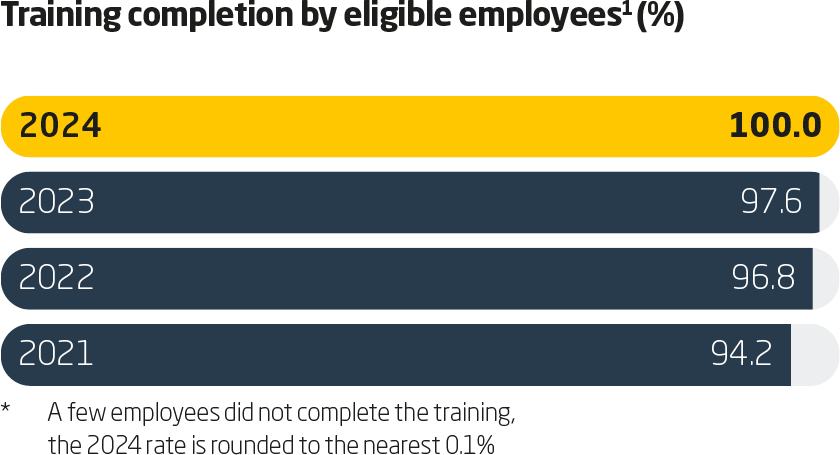
Sustainability Disclosure Index
The 2024 Intertek Sustainability Disclosure Index is complementary to our published reports and sets out how our latest disclosures map to our own Total Sustainability Assurance standards, the Global Reporting Initiative (‘GRI’) and applicable Sustainability Accounting Standards Board (‘SASB’) requirements.



